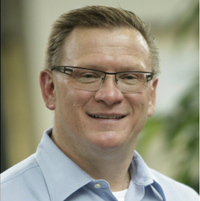Options range from leadership development programs to PhD

Professionals know the only way to keep up in the ever-changing world of work is to be a committed lifelong learner. Lifelong learners inevitably are led to higher education, which refers to all the educational options available after high school. It includes all formalized certificates, diplomas and degree programming offered at universities and colleges. Many people are held back in their careers because they have not completed the higher education needed for a position or a promotion. Minimum education standards are going up in many facets of the safety world. Generally speaking, higher education will continue to be in demand by those that want to succeed in safety.
It may be that a promotion to a higher level within your company, such as director or vice-president, requires a bachelor’s degree, a master of business administration (MBA) or maybe even a master’s degree or PhD. Maybe you just want to broaden your skill set and further develop your capacity as a leader. Regardless of your reasons, higher education is a worthwhile endeavour and further certificates, diplomas and degrees will be an asset in the long run.
So, what’s out there? Every major city in Canada has at least one university and college. There are hundreds of smaller centres across Canada that make extension programming available. Online programs abound and are available to everyone, everywhere, all the time.
Perhaps your goal is to specialize in one of the many disciplines in the occupational health and safety field. Simon Fraser University in Burnaby, B.C. has a certificate program with specialization in ergonomics, for example. How about risk management? The University of Winnipeg, York University in Toronto, Memorial University in St. John’s, N.L. and at least 20 others offer the Institute of Risk Management’s three-course specialty risk management certificate. What about disability management? Simon Fraser has a diploma program and the Pacific Coast University in Port Alberni, B.C. has a practitioner certificate program.
If you are not sure what direction to go, the Canadian Society of Safety Engineering publishes a guide called Hiring a Health and Safety Practitioner. The guide describes the range of OHS certifications and designations, in Canada and globally, and their educational requirements.
The Canadian Centre for Occupational Health and Safety (CCOHS) publishes a fact sheet summary of 50 OHS degree, diploma and certificate programs across Canada. The programs range from short programs of under 100 contact hours to university degrees, including master of science and PhD.
Having a bachelor’s degree in occupational health and safety will become the norm within one decade. Ryerson University in Toronto already offers a full-time classroom-based degree and the University of New Brunswick will soon launch one in an online format. If you are looking to take a master’s degree in the OHS area of study, McGill University in Montreal, the University of Toronto and the University of British Columbia (UBC) in Vancouver all offer programs. If you set you sights high and are careful in your program design, doing a master’s degree at McGill can lead you to cross-appointed PhD studies in occupational health. If your path takes you through UBC, you can do a PhD in their school of public health.
If it is soft skills programming you are looking for, such as leadership development, most universities in Canada offer a certificate. Canadian-universities.net offers a listing of leadership development programs. The University of Alberta in Edmonton has a four-course leadership development program as part of its executive education mandate. Dalhousie University in Halifax offers a program that follows what it calls the “master leadership model,” leading to a certificate. Even the Conference Board of Canada has a program that it says will “equip leaders with the essential leadership competencies needed to achieve organizational results.”
Perhaps you want to work on your communication or negotiation skills. UBC offers a certificate program in professional communication. The program includes persuasive business writing, report and business writing and presentation skills. Royal Roads University in Victoria offers a program that includes courses on mindful communication, difficult conversations and communication with clarity and impact. McGill has a continuing education department that offers credit and professional development courses in communication skills. Their program includes courses on effective public speaking, communication for results, conflict resolution and reading and writing for success. Regardless of where you live and work, programming is available to help you develop these essential soft skills.
As the range of higher education possibilities is nearly endless, you need to create and implement a solid professional development plan. Define the educational gaps, research the programming available and build a gap-closure plan. Here are the seven steps to follow:
• Self-assess strengths.
• Describe the knowledge, skills and abilities of the type of position, role or place you’d like to be.
• Research programming available.
• Create a road map.
• Create a plan with smaller milestones of six months to one year.
• Re-evaluate the entire plan at each milestone and adjust as necessary.
• Repeat as necessary.
So, what’s next for you? Where do you want to be in five years? What higher education will you need to close the gap? If you want to get ahead in your career and you have not engaged with ongoing higher education, now is the time to start.






